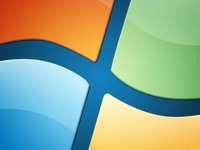
Paul Allen's tell-all memoir: Microsoft cofounders clashed over style, money
I don't know about you, but I have trouble feeling sorry if Paul Allen was cheated out of that 14th billion and stuck in the slums of 57th place on the Forbes list. Of course Paul Allen doesn't really want my pity and he's probably cool with the money he got out of his work co-founding Microsoft. They just could have been nicer to him.
An adaptation from Allen's forthcoming memoir "Idea Man" may be found in Vanity Fair. "Microsoft's Odd Couple" runs all the way from high school, where he met Bill Gates, to February 18, 1983, when he resigned as an officer from Microsoft (although he retained his position on the Board of Directors). It has already generated controversy.

Google's Android kill switch is a GOOD thing
People get so paranoid about Google! Not that Google or any other large company in this industry is especially loveable, but so-called privacy advocates are especially prone to presume the most evil motives on its part. The latest example is the "Android Kill Switch."
This issue grew out of the discovery of dozens of malicious applications in the Android Marketplace on March 1st. Google removed the apps and went a couple of steps further: The company issued a program to reverse the effects of any infections, triggering the Remote Application Removal Feature.

I'll believe Mac malware is a problem when I see it
The real world state of security on Macs has long baffled security experts. From a simple analysis of attack surface and opportunities, the Mac is not just vulnerable to attack, but far more so than Windows. And yet attacks on Mac users are rare while Windows malware continues to thrive.
What explains this? The consensus, and it's an opinion I share, is that the people who write the important malware are unconvinced that the cost/benefit of writing a parallel code base of malware for the Mac is worthwhile to them. People argue about what the real installed bases of Windows PC and Macs are, but it would appear that these developers don't think there are enough Macs out there to make it worth their while.

How do you repair errors in your QuickBooks data file?
If you've got a small business odds are very high that you use Intuit's QuickBooks for your accounting. You may have figured out by now that things go wrong with QuickBooks now and then. On occasion, they go wrong to the point of corrupting your database.
You might not be able to open your company file. Perhaps QuickBooks says it's "Not a QuickBooks data file or is damaged", perhaps along with a helpful code like "(-6189, -83)."

Bad things will happen when we run out of iPv4 addresses, and it's coming sooner than you think
You might have read about how the long-warned end of available IPv4 address space is a bit more imminent than it was, as the IANA, which governs IP address allocations on the Internet, has run out of IPv4 addresses to allocate. Simply stated: The IPocalypse is coming! It's not going to be the end of civilization, or even just the Internet, as we know it, but there will be some big problems. We're not prepared for them and we're not even working all that hard on preparing.
Here's what we know will happen in the short term: There are 5 RIRs (Regional Internet Registries) for different parts of the world -- AfriNIC, APNIC, ARIN, LACNIC, and the RIPE NCC. These organizations get address blocks from the IANA and dole them out to ISPs and other entities in their regions based on their own policies.

Microsoft adapts product support lifecycle -- 'to the cloud!'
I've always thought that one of the keys to Microsoft's success in business computing is its support lifecycle policy. When you buy a Microsoft product for your business you can count on a long period of support and bug fixes and an even longer period of security updates. Now Microsoft is adapting its support lifecycle policy to the cloud.
Click here to read Microsoft's main page on its support lifecycle. I'm running Windows 7 64-bit on a ThinkPad. The OS shipped October 22, 2009 and "mainstream support" ends January 15, 2015. After that (for business products) there are 5 years of "extended support" in which free (well, no such thing, let's say included with the software price) Microsoft support ends (other than security updates), and you can't request feature changes anymore. But you can at least buy all other support options. After 10 years, usually the "in the wilderness" phase of support starts, but at least Microsoft keeps support info on its web site. This is the phase into which, for example, Windows 2000 recently entered.

Why Microsoft has to open Windows Update to third-party developers
There's a lot of confusion out there about when attacks against computers occur as a result of vulnerabilities in software as opposed to some other weakness, usually social engineering. Considerable progress has been made in protection against vulnerabilities on Windows, and we can make exploitation even harder if Microsoft can be talked into my scheme: open up Windows Update to third-party applications.
My own opinion is that social engineering is far more important than vulnerabilities and has been increasing in importance. One reason for this is that vulnerabilities are a harder target than they used to be, and that's in large part because of the work Microsoft has done over the last 6 or 7 years.

My first brush with one of Microsoft's greats -- Bob Muglia
The end of the Bob Muglia era at Microsoft is a memory-rouser for us who have been in the business for a while. Muglia has served in important roles with important products for a long time, and I've worked with him on several. Which brings me to the first time I met him (cue harp strumming).
It was July 4, maybe July 3, 1992, the very first Windows Professional Developer Conference, at the Moscone, in San Francisco. Heady days they were, as I was Technical Director at PC Week Labs, and we were at the beginning of Will Zachman-PC Week fight which, if you don't remember it, consider yourself fortunate.

